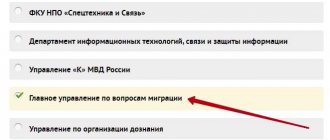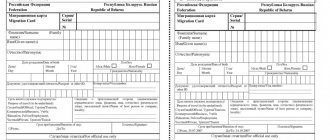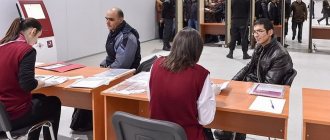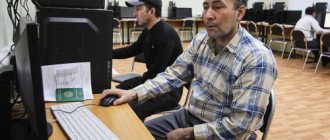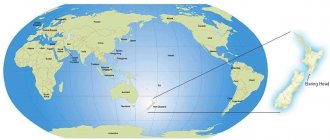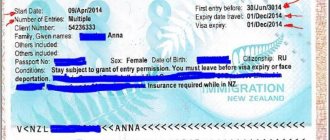Decree “On the Concept of State Migration Policy of the Russian Federation for 2019–2025”
Text of the Decree:
In connection with the need to update the goals, objectives and main directions of activity of the Russian Federation in the field of migration, I decide:
1. Approve the attached Concept of State Migration Policy of the Russian Federation for 2019–2025.
2. To the Government of the Russian Federation:
see also
World Congress of Compatriots Living Abroad on October 31, 2021
a) ensure the implementation of the Concept of State Migration Policy of the Russian Federation for 2019–2025 (hereinafter referred to as the Concept);
b) within 3 months, approve an action plan for the implementation of the Concept in 2019–2021;
c) monitor the implementation of the Concept and ensure its timely adjustment;
d) submit an annual report to the President of the Russian Federation on the implementation of the Concept.
3. Recommend that government bodies of the constituent entities of the Russian Federation and local self-government bodies be guided by the provisions of the Concept when carrying out their activities in the field of migration.
4. Recognize as invalid the Concept of the state migration policy of the Russian Federation for the period until 2025, approved by the President of the Russian Federation on June 8, 2012 No. Pr-1490.
5. This Decree comes into force from the date of its signing.
* * *
Concept of the state migration policy of the Russian Federation for 2019–2025
I. General provisions
1. This Concept defines the goal, principles, objectives and main directions of the state migration policy of the Russian Federation for 2019–2025 (hereinafter referred to as migration policy) based on an analysis of the practice of regulating migration processes and the modern understanding of national and global migration problems.
2. The legal basis of this Concept is the Constitution of the Russian Federation, generally recognized principles and norms of international law, international treaties of the Russian Federation, federal constitutional laws, federal laws and other regulatory legal acts of the Russian Federation regulating activities in the field of migration.
3. This Concept has been developed taking into account fundamental documents affecting the implementation of migration policy, primarily the National Security Strategy of the Russian Federation, the Strategy for Combating Extremism in the Russian Federation until 2025, the Strategy of the State National Policy of the Russian Federation for the period until 2025, the Strategy for Scientific and Technological development of the Russian Federation, Strategy of state cultural policy for the period until 2030, Strategy for the socio-economic development of the Far East and the Baikal region for the period until 2025, Concept of public safety in the Russian Federation, Concept of demographic policy of the Russian Federation for the period until 2025, Concept of long-term socio-economic development of the Russian Federation for the period until 2021, the Concept of demographic policy of the Far East for the period until 2025, Forecast of long-term socio-economic development of the Russian Federation for the period until 2030.
II. Conditions for the formation and implementation of migration policy
4. Current trends in the field of migration in the Russian Federation are determined mainly by economic and social factors. A stable socio-economic situation, the preservation of historical and cultural ties of the peoples of the member states of the Commonwealth of Independent States, mutual visa-free travel, the establishment of the Eurasian Economic Union are powerful factors in the migration attractiveness of the Russian Federation.
5. In 2012–2017, the intensity of internal migration in the Russian Federation increased by 10 percent. At the same time, the general trend toward population outflow to the Central, Northwestern, and Southwestern regions of the country has remained, which is a constant factor in the growth of disproportions in the distribution of the population. Almost the entire potential of internal migration occurs in urban agglomerations such as Moscow and St. Petersburg, as well as in the Krasnodar Territory.
6. More than 2 million citizens of the Russian Federation are registered with consulates abroad. Every year, about 60 thousand Russian citizens go abroad to work.
7. In 2012–2017, the migration influx to the Russian Federation compensated for the natural population decline and became a source of additional labor resources for the national economy. More than 1 million people have been granted citizenship of the Russian Federation, 525 thousand of them within the framework of the State program to assist the voluntary resettlement of compatriots living abroad to the Russian Federation. The total migration increase during this period amounted to 1.6 million people. The average annual number of migrant workers was about 3 million people (3–4 percent of the average annual number of all labor resources). About 10 million foreign citizens and stateless persons (hereinafter referred to as foreign citizens) reside on the territory of the Russian Federation annually, and more than 1 million foreign citizens reside permanently or temporarily in the Russian Federation.
8. Among foreign citizens attracted by Russian employers, a significant proportion are low-skilled workers, whose demand is often determined both by lower costs compared to the use of labor of citizens of the Russian Federation, and by the insufficiently high level of technological development and labor organization in some sectors of the economy, and by job cuts , requiring medium and high qualifications of labor.
9. In general, migration flows directed to the Russian Federation are subject to the influence of factors that determine the main vector of internal migration. The centers of migration attractiveness for foreign citizens are primarily the large economically developed cities of the European part of Russia, as well as the border territories of Siberia and the Far East.
10. In recent years, migration activity has increased significantly near the external borders of the Russian Federation and in its zone of interests. The intense migration flow from the countries of the Middle East and North Africa to Europe, which arose in 2014–2015, is causing negative socio-economic processes in European countries, and also contributes to the penetration of members of criminal, terrorist and extremist structures into these countries. Such negative manifestations can become a threat both to the Russian Federation and to the states bordering it.
11. In 2012–2017, the instruments of legal regulation in the field of migration were improved, including measures of liability for violation of the migration legislation of the Russian Federation and measures to combat illegal migration:
a) adjustments were made to the rules for foreign citizens carrying out labor activities on the territory of the Russian Federation, which made it possible to reduce the number of foreign citizens illegally staying in the Russian Federation and contributed to an increase in the number of foreign citizens carrying out labor activities legally;
b) the rules for the stay of foreign citizens studying in the Russian Federation have been optimized, which contributed to an increase in their number (291 thousand people at the beginning of the 2017/18 academic year compared to 153.8 thousand people at the beginning of the 2010/11 academic year);
c) differentiated requirements are determined and applied to the level of knowledge of the Russian language, the history of Russia and the fundamentals of the legislation of the Russian Federation, necessary for foreign citizens to carry out labor activities on the territory of the Russian Federation and obtain a temporary residence permit and residence permit;
d) additional conditions have been created to facilitate the voluntary resettlement of compatriots living abroad to the Russian Federation, and the rules for granting Russian citizenship to foreign citizens who are native Russian speakers, investors, entrepreneurs or graduates of Russian educational organizations have been simplified;
e) approaches to the social and cultural adaptation of various categories of foreign citizens have been developed and are being tested in practice, including within the framework of relevant programs and in the format of state-public partnership, with the participation of public and educational organizations, cultural and sports institutions;
f) criminal liability has been established for crossing the state border of the Russian Federation by foreign citizens whose entry into the country is not permitted, for fictitious registration of foreign citizens with migration registration. Sanctions for organizing illegal migration have been tightened;
g) administrative liability has been introduced for the inviting party for failure to fulfill obligations regarding material, medical and housing support for invited foreign citizens, for providing knowingly false information about the purpose of their entry into the Russian Federation when processing entry documents;
h) the list of grounds on which the entry of foreign citizens into the Russian Federation is not permitted or restricted has been specified and expanded, and the terms of such restrictions have been extended.
12. The effectiveness of migration policy depends on the quality of legal regulation, as well as on the practical application of the migration legislation of the Russian Federation, the effectiveness of anti-corruption measures in the implementation of state control (supervision) and the provision of public services in the field of migration, the degree of awareness of foreign and Russian citizens about the requirements of the legislation of the Russian Federation Federation and penalties for their violation.
13. To increase the efficiency of administrative procedures in the field of migration, as well as to prevent, prevent, identify and suppress violations of the migration legislation of the Russian Federation, and apply administrative measures in this area, the use of modern digital technologies and information technology tools is becoming increasingly important.
III. Purpose, principles and objectives of migration policy
14. The goal of migration policy is to create a migration situation that contributes to solving problems in the field of socio-economic, spatial and demographic development of the country, improving the quality of life of its population, ensuring state security, protecting the national labor market, maintaining interethnic and interreligious peace and harmony in the Russian society, as well as in the sphere of protection and preservation of Russian culture, the Russian language and the historical and cultural heritage of the peoples of Russia, which form the basis of its cultural (civilizational) code.
15. The main source of replenishing the population of the Russian Federation and providing the national economy with labor resources should remain its natural reproduction. Migration policy is an auxiliary tool for solving demographic problems and related economic problems. It should be aimed at creating a favorable regime for the voluntary resettlement to Russia of persons (including those who left it) who are able to organically join the system of positive social connections and become full members of Russian society. At the same time, ensuring compliance with a reasonable balance of state, public and private interests, it is important to maintain the openness of the Russian Federation for those foreign citizens who do not connect their future or the future of their children with it and do not intend to fully integrate into Russian society, but view Russia as a country with favorable conditions for satisfying their economic, social and cultural needs, comply with the requirements of the legislation of the Russian Federation, take care of its environment and natural resources, material and cultural values, respect the diversity of regional and ethnocultural ways of life of the Russian population.
16. The nature and direction of migration flows, their impact on Russian society, as well as the problems faced by migrants in their places of stay (residence) are largely determined by the quality of life in the Russian Federation, including the accessibility for citizens of social, educational, medical, cultural and other services, the state of law and order, the degree of development of transport, energy, telecommunications and information infrastructure, the level of employment and the amenities of public places.
17. The effectiveness of the implementation of the measures provided for in this Concept is determined by the ongoing state policy of the Russian Federation in the field of socio-economic development, industry, science, innovation, education, healthcare, culture, employment, regional development, ensuring state security and state youth policy, as well as foreign Russian politics.
18. In accordance with this Concept, improving the migration legislation of the Russian Federation involves, first of all, the establishment of simple, understandable and enforceable rules for citizens that meet the goals, principles and objectives of migration policy, free from administrative barriers and the costs associated with them.
19. The implementation of migration policy, which is an integral part of the state policy of the Russian Federation, is carried out in accordance with the principles of a democratic rule-of-law state established by the Constitution of the Russian Federation and generally recognized principles and norms of international law, as well as taking into account the principles defined in the strategic documents listed in paragraph 3 of this Concept.
20. The main principles of migration policy are:
a) the complexity of solving the problems of migration policy, taking into account solving the problems of socio-economic, cultural, demographic and other development of the Russian Federation;
b) priority of the interests of the Russian Federation and Russian citizens permanently residing on its territory;
c) taking into account the diversity of regional and ethnocultural ways of life of the population of the Russian Federation;
d) coordination of the activities of federal government bodies, government bodies of constituent entities of the Russian Federation and local government bodies in the field of migration;
e) participation of civil society institutions in the implementation of migration policy while observing the principle of non-interference in the activities of federal government bodies, government bodies of constituent entities of the Russian Federation and local government bodies;
f) financial security of measures to implement migration policy.
21. The objectives of migration policy are:
a) improvement of legal, organizational and other mechanisms regulating and ensuring:
voluntary resettlement to the Russian Federation for permanent residence of compatriots living abroad, as well as other persons who are able to successfully integrate into Russian society;
entry into the Russian Federation and stay on its territory of foreign citizens who wish to develop economic, business, professional, scientific, cultural and other ties, study the language, history and culture of our country, who, thanks to their work activity, knowledge and competencies, contribute to the economic, social and cultural development of Russia;
b) creating conditions for adaptation to legal, socio-economic, cultural and other living conditions in the Russian Federation of foreign citizens experiencing difficulties in adaptation due to the characteristics of their culture and usual way of life, as well as other factors;
c) creation of a favorable regime for the free movement of students, scientific and teaching workers in order to develop science, professional education, increase the level of training of scientific personnel and specialists for sectors of the economy and public administration of the Russian Federation;
d) creating conditions for reducing disproportions in the distribution of the population and solving the problems of spatial development of the country;
e) further development of mechanisms and means of prevention, prevention, detection and suppression of violations of the migration legislation of the Russian Federation and corruption violations in the field of migration, including improvement of measures of responsibility for violation of the said legislation and the legislation of the Russian Federation on combating corruption;
f) providing, in accordance with generally recognized principles and norms of international law and the legislation of the Russian Federation, assistance to foreign citizens seeking protection on the territory of the Russian Federation.
IV. Main directions of migration policy
22. The main directions of migration policy in the field of improving legal, organizational and other mechanisms regulating the procedure for entry into the Russian Federation, stay (residence) on its territory of foreign citizens, as well as the process of voluntary resettlement of compatriots and other persons to the Russian Federation are:
a) ensuring simplicity, transparency of procedures and clarity of conditions:
entry into the Russian Federation, including visas;
obtaining the right to stay (reside) in the Russian Federation, including for the purpose of carrying out work activities;
acquisition of citizenship of the Russian Federation;
b) improving the mechanisms for implementing the State program to assist the voluntary resettlement of compatriots living abroad to the Russian Federation, including:
adjusting the conditions for the voluntary resettlement of sought-after specialists (including scientists and teachers, engineers, doctors), farmers, entrepreneurs, investors and prominent cultural and artistic figures, taking into account their expectations and requests, as well as supporting Russian organizations that attract such persons;
concentration of financial resources on facilitating the voluntary resettlement of compatriots for permanent residence in the Russian Federation in the territory of priority settlement and increasing the efficiency of spending financial resources for these purposes;
elimination of unreasonable administrative barriers, time and financial costs associated with the import into the Russian Federation and registration of property, including intellectual property, means of production and other fixed assets;
c) increasing the effectiveness of measures to regulate the number of foreign workers attracted, including based on the real situation on the Russian labor market and trends in its changes, taking into account the needs of the economy of the Russian Federation and the interests of its citizens;
d) development of mechanisms for the organized attraction of foreign workers.
23. The main directions of migration policy in the field of creating conditions for the adaptation of foreign citizens are:
a) the formation of institutions and mechanisms for social and cultural adaptation of foreign citizens, taking into account their age, professional, national, cultural and other characteristics, as well as regional and ethnocultural ways of life of the population of the Russian Federation;
b) taking measures to prevent the emergence of spatial segregation, the formation of ethnic enclaves and the marginalization of foreign citizens located on the territory of the Russian Federation, including the issuance of identity documents for stateless persons who do not have such documents;
c) providing foreign citizens, regardless of their migration status, income level and other circumstances, with equal opportunities to receive government services in the field of migration, including information.
24. The main directions of migration policy in the field of promoting the free movement of students, scientific and teaching workers are:
a) increasing the availability of educational services for foreign citizens, including improving the rules for entry into the Russian Federation and stay on its territory for foreign citizens for the purpose of studying in Russian educational organizations;
b) ensuring the openness of the Russian Federation for students, scientists and teaching staff, including creating a comfortable regime for them to enter the Russian Federation, stay, receive education and carry out professional activities on its territory;
c) expanding opportunities for inviting teachers from foreign educational organizations for the purpose of teaching Russian citizens;
d) improving the mechanisms for selecting talented foreign youth for admission to Russian educational organizations within the allocated quotas.
25. The main directions of migration policy in the field of creating conditions for reducing disproportions in the distribution of the population and solving the problems of spatial development of the Russian Federation are:
a) taking into account the tasks of creating favorable conditions for internal migration, reducing disproportions in the distribution of the population (including ensuring transport connectivity of regions, creating an affordable housing market) and meeting the economic, social, educational, professional and cultural needs of citizens when developing a strategy for the development of regions of the Russian Federation, distribution of financial resources and selection of projects in the field of creation and modernization of housing, medical, educational, transport and other infrastructure;
b) development of state policy instruments in the field of employment;
c) ensuring the completeness, quality and accessibility of information about employment opportunities on the territory of the Russian Federation.
26. The main directions of migration policy in the field of improving mechanisms for the prevention, prevention, detection and suppression of violations of the migration legislation of the Russian Federation and corruption violations in the field of migration, including penalties for violation of the said legislation and the legislation of the Russian Federation on anti-corruption, are:
a) improving the legal framework for combating illegal migration, including regulating the liability of persons for violating the migration legislation of the Russian Federation, in particular for submitting forged or forged documents and knowingly false information, facilitating their submission or committing fictitious actions to obtain foreign citizens the right to enter Russian Federation, stay (residence), carrying out labor activities on its territory and acquiring citizenship of the Russian Federation;
b) improvement of state control (supervision) in terms of entry into the Russian Federation, exit from the Russian Federation, transit passage through its territory, stay (residence) of foreign citizens and their labor activities on the territory of the Russian Federation;
c) development of the infrastructure of the state border of the Russian Federation, including equipping it with technical means that make it possible to timely identify and prevent entry into and exit from the Russian Federation of foreign citizens who do not have the right to such entry and exit;
d) improving the mechanisms for interested government bodies to receive information about the presence of foreign citizens in the Russian Federation and their movement across its territory;
e) expanding the use of modern biometric technologies for personal identification in order to increase the efficiency of state control (supervision) in the field of migration, ensuring public safety and providing government services in the field of migration;
f) ensuring effective control over compliance with the requirements of labor legislation and the legislation of the Russian Federation on taxes and fees by employers attracting and using foreign workers;
g) improving the procedure for executing decisions on the administrative expulsion of foreign citizens from the Russian Federation and their deportation, as well as the procedure for transferring foreign citizens in accordance with the international treaties of the Russian Federation on readmission;
h) improving administrative procedures in the field of migration, including the introduction of electronic forms of interaction between recipients of public services and the bodies and organizations providing them, the use of the format of multifunctional centers and other organizational and technical solutions, in order to:
increasing the transparency of administrative procedures and their protection from corruption;
reducing the likelihood of making uninformed decisions and making technical errors;
reducing time, organizational and financial costs associated with the provision of public services and their receipt;
i) ensuring the possibility of participation of civil society institutions in the implementation of public control over the implementation of migration legislation of the Russian Federation;
j) implementation of measures aimed at identifying and suppressing violations of the migration legislation of the Russian Federation, organizing illegal migration, human trafficking, and the use of forced labor, including jointly with the competent authorities of foreign states;
k) creation, maintenance and development of state information systems;
l) increasing the efficiency of preventive, informational and explanatory work with citizens, employers, customers of work and services in order to prevent violations of the migration legislation of the Russian Federation;
m) improving the migration control mechanism in order to solve problems of ensuring the national security of the Russian Federation, including countering criminal, terrorist and extremist structures.
27. The main directions of migration policy in the field of providing assistance to foreign citizens seeking protection on the territory of the Russian Federation are:
a) maintaining high standards and further developing mechanisms for providing assistance to foreign citizens seeking protection on the territory of the Russian Federation, in accordance with the international legal obligations of the Russian Federation and taking into account the interests of Russian citizens;
b) ensuring the readiness of interested federal executive authorities, in interaction with executive authorities of the constituent entities of the Russian Federation, to receive and accommodate foreign citizens in the event of their emergency mass arrival in the Russian Federation;
c) providing refugees, persons granted temporary asylum, and applicants for an appropriate status with assistance in social and cultural adaptation, taking into account the vulnerability of their situation;
d) creation of additional tools for regulating migration flows, taking into account the socio-political and socio-economic situation in the countries from which foreign citizens arrive in the Russian Federation.
V. International cooperation of the Russian Federation in the field of migration
28. International cooperation of the Russian Federation in the field of migration is carried out in the following areas:
a) implementation of international treaties of the Russian Federation in the field of migration;
b) conclusion, if necessary, of international treaties of the Russian Federation, taking into account the goals, principles, objectives and main directions of migration policy;
c) ensuring the mutual interests of the member states of the Eurasian Economic Union;
d) participation of the Russian Federation in the activities of international organizations, interaction with foreign partners and international institutions in order to improve the quality of regulation of international migration flows;
e) ensuring the fruitful participation of the Russian Federation in interaction with foreign states, international organizations and associations in the formation of a positive, balanced and unifying international agenda and in developing decisions on migration issues;
f) exchange of experience in implementing migration policy and managing migration processes;
g) increasing the effectiveness of mechanisms to combat illegal migration, including expanding agreements on readmission;
h) improving mechanisms for the exchange of information on citizenship and other information relating to migrants, as well as increasing the level of security of such information during its processing and cross-border transfer;
i) monitoring the socio-political and socio-economic situation in foreign countries whose citizens are granted protection in the Russian Federation.
VI. Information and analytical support for the implementation of migration policy
29. Information and analytical support for the implementation of migration policy provides for:
a) improving the language for describing migration processes and the migration situation in order to create an accurate and unambiguous idea of the implemented migration policy;
b) achieving a deeper understanding of the migration situation, including by increasing the number of assessed parameters that reflect its impact on economic, social, cultural, national, ethno-confessional and other aspects of the life of Russian society, at the individual, family, local, regional and federal levels ;
c) expanding the use of modern digital technologies for the purposes of:
studying, assessing and forecasting changes in the migration situation;
the use of biometric information in the implementation of state control (supervision) in the field of migration;
provision of public services in the field of migration.
VII. Basic mechanisms for the formation and implementation of migration policy
30. The fundamentals of migration policy are determined by the President of the Russian Federation.
31. The Chambers of the Federal Assembly of the Russian Federation, within the limits of their powers, work on legislative support for migration policy.
32. The Government of the Russian Federation coordinates the activities of federal executive authorities and executive authorities of the constituent entities of the Russian Federation in the field of migration and ensures the implementation of a unified migration policy.
33. Federal government bodies, with the participation of government bodies of the constituent entities of the Russian Federation and local governments, take measures to implement migration policy.
34. The main mechanisms for implementing migration policy are:
a) implementation of measures to implement migration policy on a planned basis;
b) submission to the President of the Russian Federation of the annual report of the Government of the Russian Federation on the progress of implementation of migration policy;
c) ensuring high-quality professional training for government officials involved in migration issues;
d) objective information coverage of migration issues and the implementation of migration policy.
35. Adjustments to this Concept are carried out by decision of the President of the Russian Federation on the basis of proposals prepared by the Government of the Russian Federation, taking into account the results of monitoring the implementation of this Concept and changes in social, economic, foreign policy and other conditions that have a significant impact on its implementation.
Themes
- Migration
- Compatriots
Material status
Published in sections: News, Documents
Date of publication: October 31, 2021, 13:20
Link to material: kremlin.ru/d/58986
Text version
“They launch as many as you want!” Putin's words about migrants caused a strong reaction from Russians
Citizens expressed their opinion on the problem voiced by the head of state.
Russian President Vladimir Putin said that Russia must do everything possible to prevent the situation that has arisen with migrant children in other countries, reports KONKURENT.RU.
We are talking about the president’s statement on regulating the number of such children in Russian schools. As the head of state explained, at the moment in a number of European countries and the United States there is a situation where the uncontrolled number of migrant children in schools leads to the fact that local residents simply take their children out of educational institutions. As a result, such schools become 100% staffed by children of migrants, and local residents are forced to endure inconvenience in order to place their children in other educational institutions.
This is precisely the situation that, according to Putin, cannot be allowed to happen in Russia. At the same time, the head of state noted that at the moment the authorities do not have an exact plan of action on how to avoid the practices of foreign countries.
The president's remarks caused a stormy reaction on the Internet. Users of the social network Facebook expressed different attitudes to this problem.
Some Russians agreed with the head of state, noting that a short-sighted policy towards migrants could lead to catastrophic consequences for the country.
"Right! This question has arisen urgently, and has been for a long time! Thank God that the government and the Russian President personally paid attention to this!” – wrote Svetlana N.
Some citizens believe that the Russian authorities simply will not be able to come up with and implement such a regulatory mechanism, since the number of migrants coming to Russia still remains large.
"How? If they are launched as many as you want! And they settle quite compactly,” said Yulia L.
The Russians also pointed out that the experience of foreign countries shows the negative impact of uncontrolled migration policies. At the same time, citizens shared their opinion that many migrants were never able to assimilate, learn the language and culture of the country that adopted them.
“The example of many countries shows that assimilation, as the governments want, is not happening. There will be no click. People come, receive citizenship and continue to live with their mentality, generations,” explained Tatyana T.
There were also those Russians who remembered the experience of the Soviet Union. Such citizens pointed out that during the Soviet period there was no such problem, since many peoples lived in one country.
“Under the USSR, such questions did not arise, because there was friendship between peoples. And now they are being made enemies. Deliberately, in someone’s interests,” says Rustam G.
